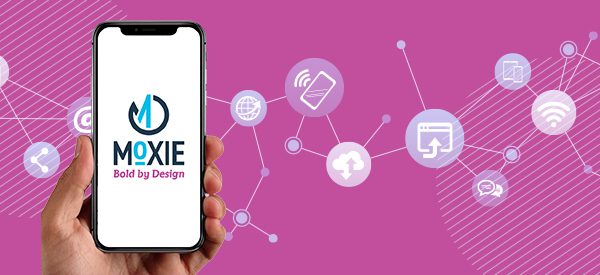Over the past two years, the national conversation about racial equity and justice has shifted to the forefront. For businesses not focused on this type of work, it can be challenging to decide what to say about it. Moxie and our parent company, VGM Group, Inc., are working on our own diversity, equity, and inclusion (DEI) initiatives, as well as helping some clients with messaging around theirs. If your business is working on racial equity initiatives, or if you just want to be an active ally, our research and work has helped us generate these pointers.
Understanding Allyship
We can all Google a quote to post for Black History Month. But there is a difference between posting a quote on social media and true allyship—a difference between performative and authentic allyship. We like these descriptions:
Performative allyship has very little to do with reducing harm and ending systems of oppression. It happens when you want to skip to the end bit. Performative allyship is leaping from half-listening, straight into action.
With authentic allyship, there is an obvious and genuine attempt to transfer the benefits of privilege to those who lack it, to advocate on another group’s behalf, and support them to achieve change.
Whether you’re working with organizations that help Black business owners, refugee families, LGBTQ+ teens, or any other group, you can be an authentic ally for anyone who lacks the same privileges you enjoy. The same goes for businesses. Here are three rules to consider for authentic allyship for your business or organization:
- Listen. Don’t jump straight from idea to action. Seek input from different perspectives. Find out the immediate needs of the group you want to help. Keep in mind, though, that some may feel like they’ve been saying the same things for too long without seeing results. Respect their exhaustion.
- Act first, then talk about it. Do not let listening slow you down, though. Listening can be a continuous process that happens simultaneously with action. And do not publicize your plans. Posting or sharing about what you plan to do can feel inauthentic. It is OK to create posts and a news release after you’ve helped a group create change, or succeeded in recruiting more Black leaders, or implemented something you’ve learned through training. Don’t go overboard, however. You’re not doing this for recognition—or at least, you shouldn’t be.
- Be transparent. Tell the truth and say what you mean. Words matter. When you use euphemisms or generalities instead of what you really mean, you appear inauthentic. Specific language leads to accountability. Accountability leads to trust.
Language is Powerful
For a long time, many considered vague language about race and inequity to be more polite than saying what we really mean. But that vague language is precisely what lets us hide from accountability. Here are some examples:
- Do not say “minorities” when you really mean “Black people” or “people of color.” A “minority” is relative term, and sometimes the people you’re talking about are not even minorities in their communities.
- “Marginalized” removes agency from the community in question. Someone else must “marginalize” them.
- “Diverse” is an adjective that can describe the makeup of a group of people, but one person cannot be diverse. There is no such thing as a “diverse candidate” for a job.
- “BIPOC” means Black, Indigenous, and people of color. It can feel disingenuous to use this term when you’re only referring to Black people. Again, be specific.
A note about “Black” with a capital “B:” There are a lot of reasons people cite for capitalizing the B in Black, but as marketers and writers, we follow AP style, so we only need one reason. Per the Associated Press, “Use of the capitalized Black recognizes that language has evolved, along with the common understanding that especially in the United States, the term reflects a shared identity and culture rather than a skin color alone.”
There are a lot of nuances involved when you’re talking about race, inequity, and your efforts to be an ally. Do your research and do your best. DEI work is a journey, and every step forward is a step in the right direction. We will all make mistakes—and that is OK. The important thing is to course correct and continue.
If your business or organization needs help communicating about your DEI work, give us a call. Moxie is your marketing ally. We can help craft authentic messages that build trust with your audiences.






